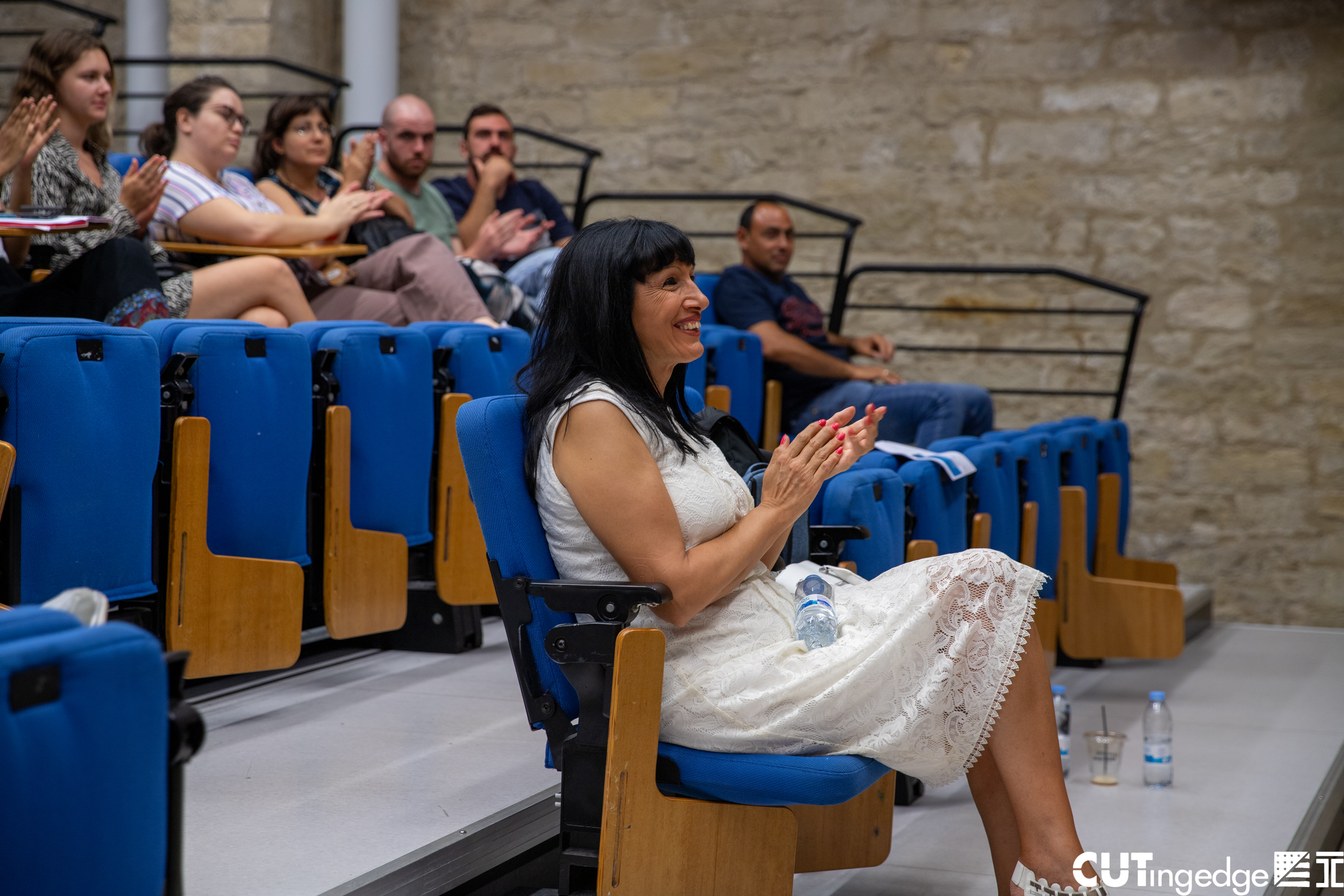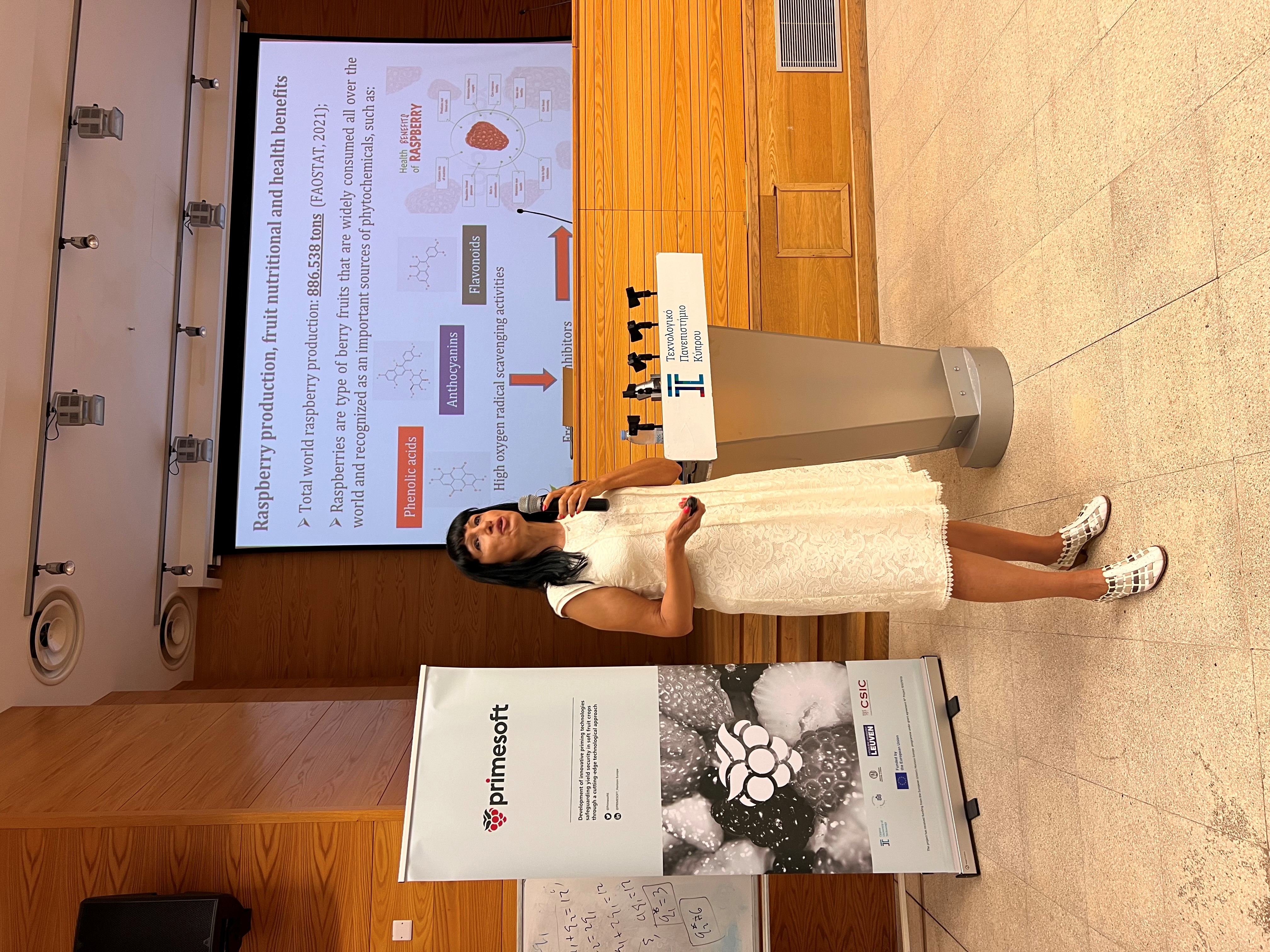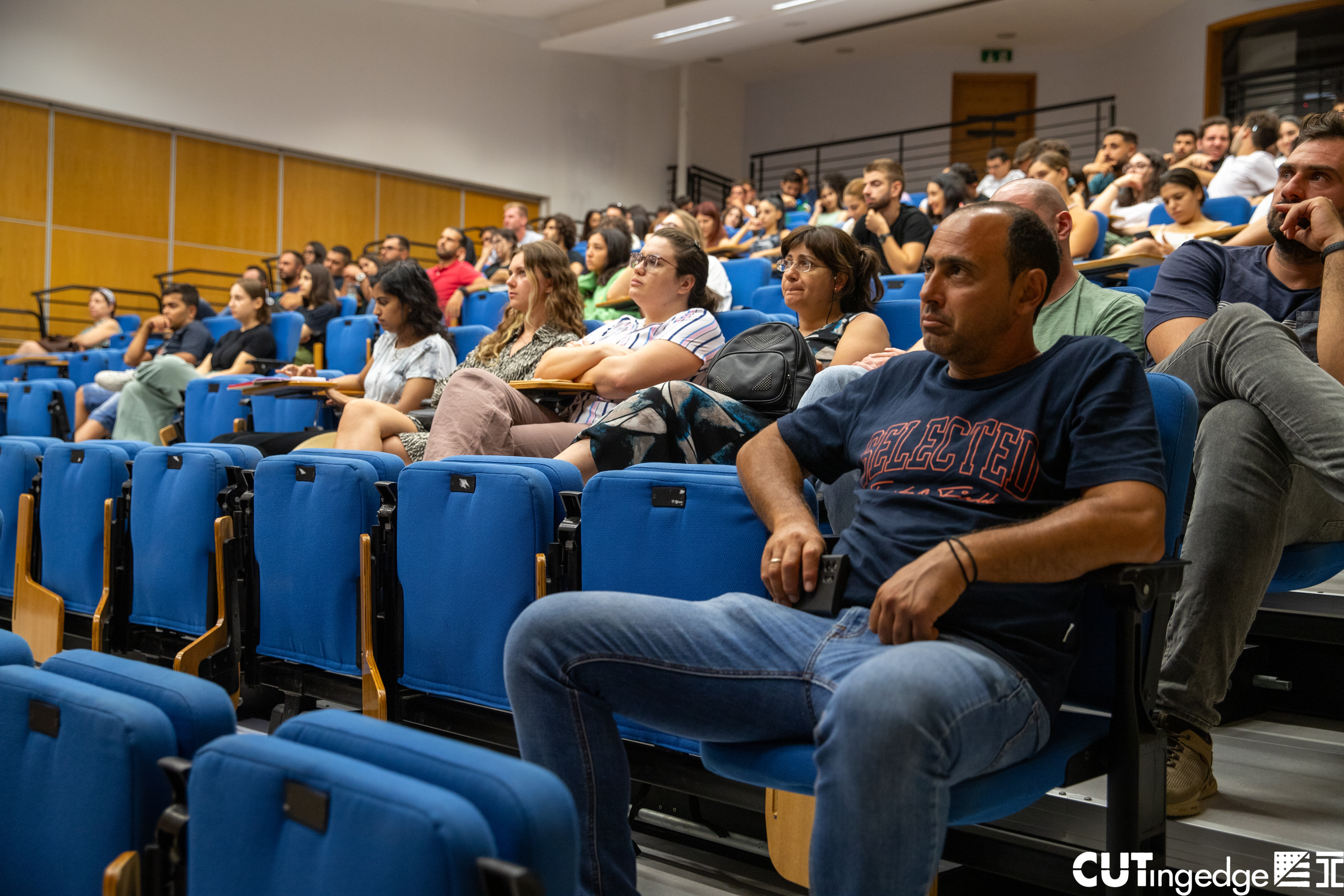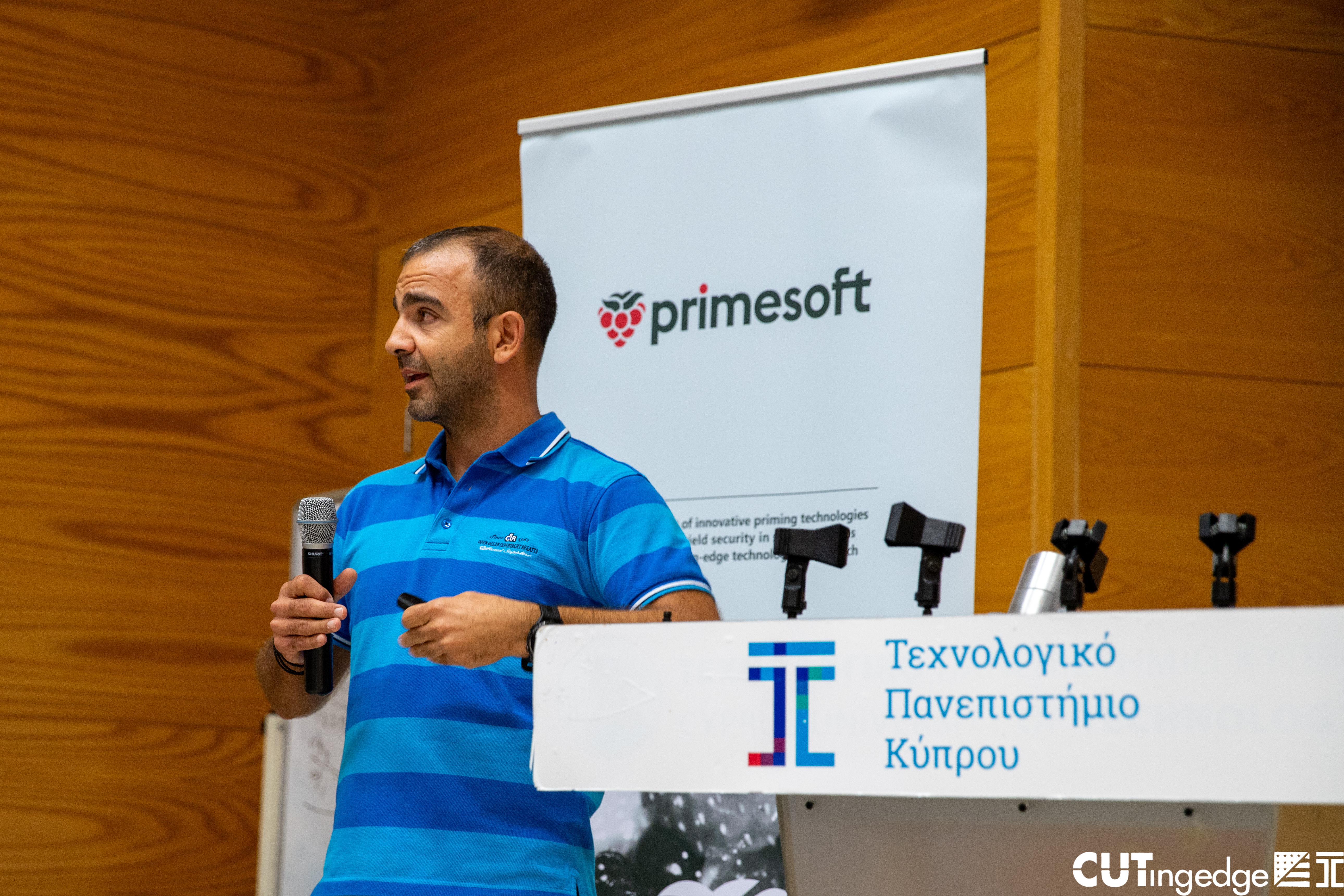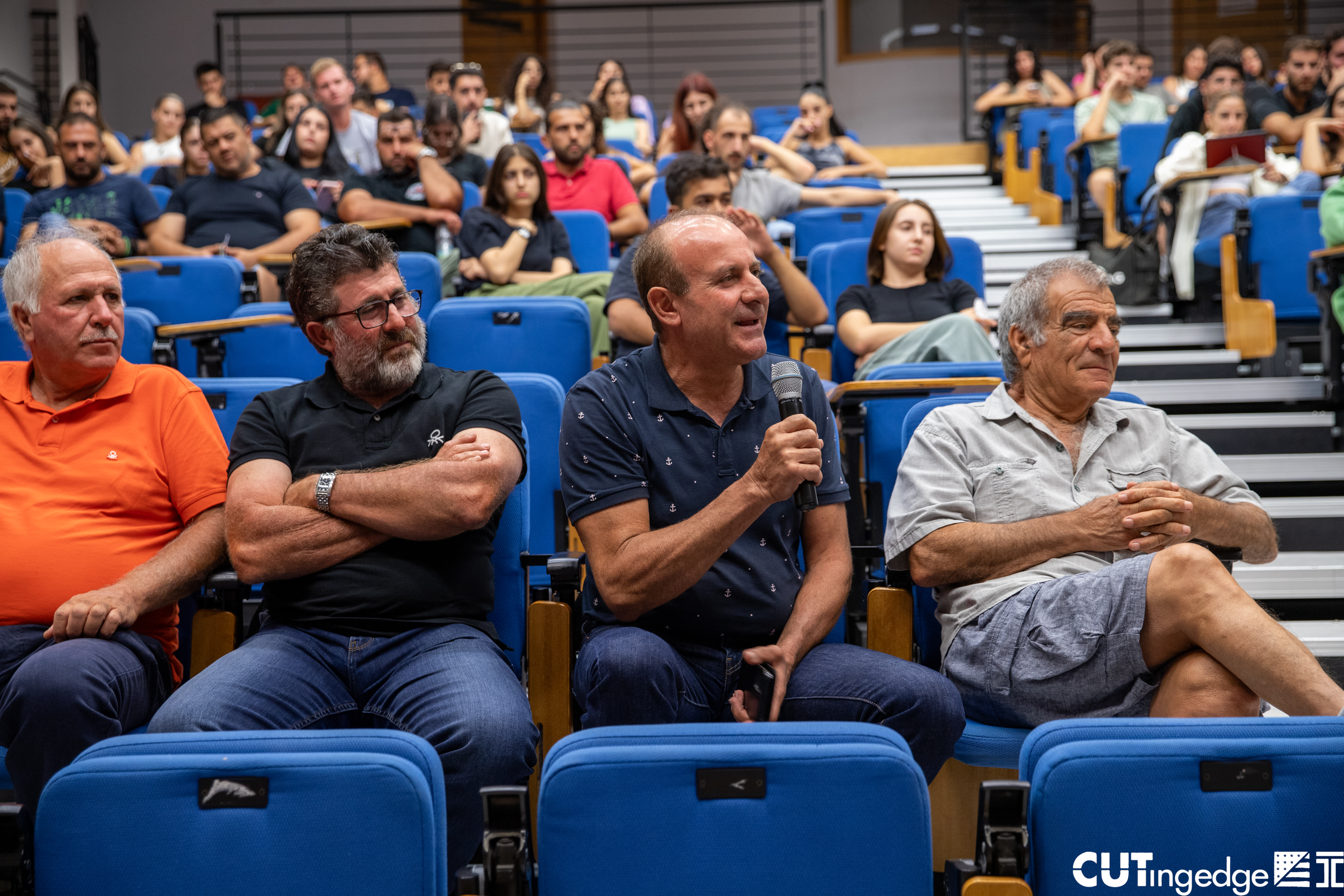
Events
International Workshop
An international workshop on sort fruit crops was organized in Lemesos, Cyprus during the period 4-5 of November. The program was comprised of 34 oral presentations, allocated in six thematic sessions and two round table discussions. (click here to download the Book of abstracts)
Scientific sessions
- Priming technologies to combat abiotic stress conditions
- Breeding strategies towards resilient berry production
- Defining qualitative and phytochemical attributes of berry crops
- Production models and cultivation practices
- Sustainable solutions towards production of berry crops
- Challenges in the soft fruit production sector in different climatic conditions
Round table discussions
- Advancing research activities and extension services in berry crops
- What the companies seek from academia?
List of speakers
- George Manganaris, The PRIMESOFT project in a snapshot
- Vassilis Fotopoulos, Plant and seed priming as green tools for sustainable agriculture on soft fruits under a changing climate
- Bernd Müller-Röber, The concept of priming: How to trigger stress preparedness in plants
- Salma Balazadeh, HOTmemory – How plant develops tolerance to recurring heat stress
- Bruno Mezzetti, Pre-breeding strategies for obtaining new resilient and added value berries
- Bertus Meijer, Challenges in the raspberry breeding sector towards development of elite and resilient cultivars
- Marco Bertolazzi, Breeder and marketer collaborative innovations in accelerating the berry variety commercialization
- Graham Clarkson, Breeding, propagation, production and supply chain management protocols of Edward Vinson Ltd. for UK strawberries
- Evangelos Tsormpatsidis, Strawberry production in Greece: challenges and opportunities for development through breeding
- Felicidad Fernandéz-Fernandéz, Breeding raspberries and blackberries for year-round supply of the northern European market
- Francisco A. Tomas-Barberan, Strawberry and raspberry are excellent sources of valuable bioactives with impact on human health
- Carlos Garcia, Metabolomics in Agri-food: Analysis of soft fruit-relevant phytochemicals and priming to enhances their quality
- Bart Nicolai, Advances in online quality grading of fruit
- Maarten Hertog, Volatile organic compounds and aroma profile as an intricate part that defines fruit quality
- David Bryla, Blackberry production trends and adaption to diverse climates in the United States
- Wendy Schotsmans, JanssenPMP vision for the future in soft fruits
- Jorge Duarte, The blueberry fruit production within a global context: challenges and constrains
- David Percival, Empowering wild blueberry plants and mitigating floral diseases with the use of biotic priming trechnologies
- Robert Veberic, Unveiling the impact of controlled environments on highbush blueberry cultivation
- Nicolas Valanides, Establishing a soft fruit program in Cyprus and the exploitation of different mesoclimates: lessons received and lessons learned
- Zoran Radovanovic, Raspberry cultivation for processing and fresh market in Serbia
- Magda Krokida, Life cycle analysis as an intricate part of assessing the enironmental and socioeconomic impact of berry crops’ production models
- Ellen Thompson, Breeding for sustainability and breeding for the global premium market
- Jasminka Milivojević, Microalgae-based products as innovative technological approach to enhance performance of soilless cultivated highbush blueberries
- Sujeeth Neerakkal, Sustainable technologies to enhance crop resilience to the effects of climate change
- Lisa Wasko DeVetter, Beat the heat – mitigating heat damage in raspberry
- Itay Maoz, Exploring the VOC profiles within the local population of new primocane lines toward flavor-guided breeding
- Vera Theelen, Sustainable year-round strawberry cultivation with fresh everbearer plants
- Antonios Petridis, Securing soft fruit production in Denmark
- Amparo Monfort, Genomics to achieve disease and pest resistant strawberry cultivars as a priority in breeding programs
- Monia Dall’ Ara, Breeding’s concepts for a stronger and equilibrate growth of the berry industry
- Costanza Zavalloni, More berry with less resources: building resilient production systems
- Dimitrios Doukas, Specialty plastic films for soft fruits
- Sonja Bergner, EU funding landscape and upcoming opportunities for Agricultural/Food-related R&I
Infodays
Two info days at Cyprus will take place at Cyprus targeted to local stakeholders and the general public.
Infoday 1
Soft fruit production within a global context: Challenges and constraints in the cultivation of strawberry and raspberry towards enhanced yield efficiency
Venue: I, Tassos Papadopoulos Building, Cyprus University of Technology, Themidos & Ifigeneias corner, Limassol
Date: Thursday 14 September 2023, 18:30-20:30
Attendees: 110
Download The PDFSpeakers:
Prof. Jasminka Milivojević, University of Belgrade
Constraints and challenges on raspberry production in Serbia
The Republic of Serbia is one of the world’s leading producers and exporters of raspberries, with an average annual production of 117,214 tons in the last five years. More than 90% of raspberries produced are exported frozen to foreign markets, while the export of fresh raspberries is almost negligible. Although the total area under raspberry cultivation has increased to 20,807 ha, the average yield per hectare has steadily decreased and in 2021 was 5.3 tons (FAOSTAT, 2023). Raspberry production is concentrated in the western and southwestern parts of Serbia mainly on small farms with an average area of 0.25 ha. ‘Willamette’ is still the predominant floricane fruiting cultivar in raspberry plantations, occupying more than 90% of the total area under cultivation. The main reason for the slow replacement of this cultivar by the new and better cultivars is the high demand of the Western European processing industry for its dark red and delicious fruits, which are mostly exported frozen to foreign markets. The floricane fruiting cultivars ‘Meeker’ and ‘Fertödi Zamatos’, suitable for both frozen and fresh consumption, are slowly spreading and currently account for 3-5% of the total cultivated area. Other cultivars, such as ‘Tulameen’ and ‘Glen Ample’, which are suitable for fresh consumption, are grown only on a small scale, as there is no organized export of fresh raspberries from Serbia. Recently, primocane fruiting cultivars ‘Enrosadira’ and ‘Kwanza’ have been spread in protected environments (greenhouses) to meet the growing needs of producers and consumers. These cultivars continually set fruit on the current season's canes from mid-July to fall and in early June on the previous season's canes, extending the harvest season and providing the total yield of the two crops to exceed 30 tons per hectare. In contrast, average yields of floricane fruiting raspberry cultivars vary and range from 5 to 20 tons per hectare, depending on the orchard management. The floricane fruiting cultivars are cultivated in the vertical trellis system consisted of pillars with two wires and an additional support for long fruiting branches, while the primocane fruiting cultivars are grown in the hedgerow system with additional trellises, depending on the vigor and yield potential of the cultivar. Main constrains in raspberry production include: the poor quality of planting material; the choice of unsuitable locations for establishment of new plantations; the adverse effects of climatic factors; the lack of field extension services and, accordingly, inadequate management of raspberry plantations. The challenges in raspberry production are related to the development of new cultivation techniques through the use of soilless systems, anti-hail nets, rain shelters, and plastic tunnels to avoid unfavorable climatic and soil conditions, and infestation with various fungal diseases.
Dr Ευάγγελος Τσορμπατσίδης, Βerryplasma Worldwide
H καλλιέργεια της φράουλας στην Ελλάδα: νέες προκλήσεις και προοπτικές ανάπτυξης μέσω προγραμμάτων γενετικής βελτίωση για την ανάπτυξη νέων ποικιλιών
Η Ελλάδα είναι μια από τις πιο σημαντικές ζώνες για πρώιμη παραγωγή φράουλας στην Ε.Ε. Το 2022/2023 καλλιεργήθηκαν 20000 στρέμματα με αξία προϊόντος περισσότερο από 150 εκατ. €. Παρόλο που διαθέτει συγκριτικά πλεονεκτήματα, στερείται δικών της ποικιλιών φράουλας. To υπάρχον μοντέλο παραγωγής βασίζεται σε διεθνείς ποικιλίες, τα χαρακτηριστικά των οποίων είναι προσαρμοσμένα στις απαιτήσεις των χωρών που αναπτύχθηκαν. To πρόγραμμα ανάπτυξης ποικιλιών της Berryplasma στοχεύει στην δημιουργία γενοτύπων φράουλας οι οποίοι να συνδυάζουν βελτιωμένα παραγωγικά χαρακτηριστικά (πρωιμότητα, μέγεθος καρπού, συνολική παραγωγή) και ποιοτικά χαρακτηριστικά όπως μετασυλλεκτική διάρκεια ζωής του καρπού και υψηλό % εμπορευσιμότητας. Στα πλαίσια του προγράμματος έχουν αναπτυχθεί 4 ποικιλίες, 3 Short day (Kallisti, Elektra and Phaedra) και 1 Day neutral (Aethra) απόλυτα προσαρμοσμένων στις συνθήκες την Νοτίου Ευρώπης συνδυάζοντας ταυτόχρονα όλα τα επιθυμητά εμπορικά και ποιοτικά χαρακτηριστικά.
Infoday 2
Soft fruit production within a global context: Challenges and constraints in the cultivation of strawberry and raspberry towards enhanced yield efficiency
Venue: I, Tassos Papadopoulos Building, Cyprus University of Technology, Themidos & Ifigeneias corner, Limassol
Date: Tuesday 18 February 2025, 17:00-21:00
Attendees: 60
Download The PDFSpeakers:
Marco Butera
The blueberry fruit production within a global context: challenges and constrains
Blueberry (Vaccinium spp.) commercial cultivation is considered long term in comparison to other soft fruit investments. Therefore, when a grower or agronomist designs a new blueberry orchard, they need to justify establishment costs and generate adequate income at acceptable quantitative and qualitative levels for at least 10 to 15 years. To that extend, an orchard designed in 2024, planted in 2025 will still be in production in 2035 or 2040. Consequently, the agronomical investment must consider both depreciations, return of investment but also potential challenges of the world’s market in 15 years. Climate change was primarily a topic discussed by scientists and academics since the mid-1980’s, however it is now becoming harsh and real for everyone, especially people working in agriculture. The climate anomalies that in the past were only local events now are happening increasingly at global scale., According to climate change projections, high-chill zones will transition to mid-chill in 10 years, and many mid-chill areas will become low-chill. Eventually, low-chill regions will turn into no-chill areas. These changes will significantly affect production cycles and the global blueberry market in the coming years. The global spread in many blueberry areas also bring new pests: Drosophila suzukii and Scirtothrips dorsalis have already altered the mindset of several blueberry producers. Looking ahead, due to the global movement of plant material and the more suitable climate condition for some diseases due to the climate change, we may witness a global pressure of important diseases, such as Xylella fastidiosa, Monilinia vaccinii-corymbosi (Mummy berry), or Popillia japonica. Economically, the massive expansion of new berry plantations by small and major blueberry players over the last 5 years will inevitably transform blueberries into an increasingly common commodity; this market evolution, coupled with climate change and the spread of new pests, will increase the complexity to achieve economic success for producers and investors. The challenges before us are immense and global, whereas the decision to make a blueberry orchard will need careful and professional design. This decision will need to be accommodated with serious contemplate on how the world will be like in 10 or 20 years. Only then the blueberry entrepreneur can make conscious and profitable decisions.
Tobias Bönisch
Berry Me, I Berry You – A Journey through the World of Raspberries
Raspberries – these vibrant, ruby-red fruits are far more than just a sweet delight. They symbolize nature, indulgence, and global connection. In this talk, we’ll explore the fascinating journey of a raspberry: from propagation, breeding, cultivation and care to harvest, cooling, and consumption – whether in a personal garden, through community initiatives like plant adoptions, or on sprawling plantations from Down Under to the northernmost regions. There is always a place for the beauty of this precious fruit. Raspberries are more than just a fruit – they are a story of passion, sustainability, and the joy of sharing nature’s treasures. Drawing from personal experiences, including a life shaped by the deep love for Raspberries this presentation combines insights into raspberry farming with a reflection on how these small fruits are a call to return to more mindful agricultural practices. As market demand for healthier, more natural produce grows, and climate change is an ongoing event to handle, it becomes clear that robust plant varieties and high end production systems might only be part of the solution. The real success lies in understanding your plants and being attentive to their needs. Long-term sustainability in raspberry farming cannot rely solely on chemical interventions. Instead, the focus must shift toward a systemic, protective approach that emphasizes prevention rather than reactive, curative methods. Join me as we celebrate the raspberry’s journey, its role in global agriculture, and its unique place in our hearts. From seedling to taste explosion – let's dive into the world of this most precious red diamond and discover how she can inspire big changes in the way we grow, nurture, and enjoy our food.
Φάνης Παπανικολόπουλος
Η καλλιέργειας της φράουλας: προκλήσεις και προοπτικές ανάπτυξης
Η Ελλάδα είναι μια από τις πιο σημαντικές ζώνες για πρώιμη παραγωγή φράουλας στην Ε.Ε. Το 2022/2023 καλλιεργήθηκαν 20000 στρέμματα με αξία προϊόντος περισσότερο από 150 εκατ. €. Παρόλο που διαθέτει συγκριτικά πλεονεκτήματα, στερείται δικών της ποικιλιών φράουλας. To υπάρχον μοντέλο παραγωγής βασίζεται σε διεθνείς ποικιλίες, τα χαρακτηριστικά των οποίων είναι προσαρμοσμένα στις απαιτήσεις των χωρών που αναπτύχθηκαν. To πρόγραμμα ανάπτυξης ποικιλιών της Berryplasma στοχεύει στη δημιουργία γενοτύπων φράουλας οι οποίοι να συνδυάζουν βελτιωμένα παραγωγικά χαρακτηριστικά (πρωιμότητα, μέγεθος καρπού, συνολική παραγωγή) και ποιοτικά χαρακτηριστικά όπως μετασυλλεκτική διάρκεια ζωής του καρπού και υψηλό % εμπορευσιμότητας. Στα πλαίσια του προγράμματος έχουν αναπτυχθεί 4 ποικιλίες, 3 Short day (Kallisti, Elektra and Phaedra) και 1 Day neutral (Aethra) απόλυτα προσαρμοσμένων στις συνθήκες την Νοτίου Ευρώπης συνδυάζοντας ταυτόχρονα όλα τα επιθυμητά εμπορικά και ποιοτικά χαρακτηριστικά.














